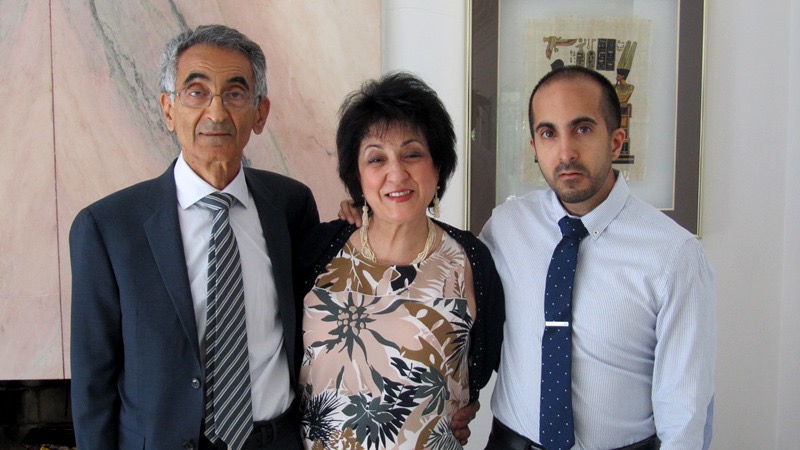Kia Kermani Foundation furthers namesake’s legacy with gift for research

The Kia Kermani Foundation recently established the Kia Kermani Foundation Research Fund for Personalized Medicine at Penn State College of Medicine, which will advance translational and clinical research conducted through the Penn State Institute for Personalized Medicine.
Vali and Pari Kermani founded the Kia Kermani Foundation to honor the memory of their only child, who died unexpectedly in 2019 at the age of 33, following a series of medical errors at a California hospital.
Kia’s family has described him as a healthy, athletic, studious, creative and diligent humanist with a vision and passion for precision medicine. He had been involved in developing a special unit of single-cell, liquid biopsy technology, which is currently used in advanced medical centers. The foundation exists to continue Kia’s legacy by providing resources to advance precision medicine that will facilitate earlier and more reliable diagnoses, enhance treatments and therapies and ultimately save and improve lives.
“We strongly believe that if proper precision medicine standards—which were a part of Kia’s broader vision for healthcare—were applied in his own case, he would still be alive today to serve others,” said Vali Kermani. “That is why we are pleased to support the Penn State Institute for Personalized Medicine and advance precision medicine for everyone so no other person has to go through needless pain and suffering like our dear Kia did. Our goal and hope is to see precision medicine become the national and global standard in healthcare.”
“We are deeply grateful to the Kermanis for their generous and thoughtful gift,” said Dr. James Broach, director of the Penn State Institute for Personalized Medicine and chair of the Department of Biochemistry and Molecular Biology at Penn State College of Medicine. “They have endured an unthinkable loss, and we are humbled they have chosen us to help carry on their son’s legacy. More research is urgently needed to effectively integrate precision medicine into the practice of healthcare, and the Kia Kermani Foundation Research Fund for Personalized Medicine will be instrumental to help us move new technologies and treatments across the finish line to change and save lives sooner.”
The Penn State Institute for Personalized Medicine is currently engaged in projects focused on opioid addiction, amyotrophic lateral sclerosis (ALS), thyroid cancer, pancreatic cancer, neonatal sepsis, idiopathic pulmonary fibrosis (IPF), acute myeloid leukemia, head and neck cancer, inflammatory bowel disease, osteoporosis, bipolar disorder and a number of additional cancers.
About Penn State College of Medicine
Located on the campus of Penn State Health Milton S. Hershey Medical Center in Hershey, Pa., Penn State College of Medicine boasts a portfolio of more than $100 million in funded research. Projects range from development of artificial organs and advanced diagnostics to groundbreaking cancer treatments and understanding the fundamental causes of disease. Enrolling its first students in 1967, the College of Medicine has more than 1,700 students and trainees in medicine, nursing, other health professions and biomedical research in both Hershey and State College, Pa.
The Kia Kermani Foundation Research Fund for Personalized Medicine at Penn State College of Medicine will advance “A Greater Penn State for 21st Century Excellence,” a focused campaign that seeks to elevate Penn State’s position as a leading public university in a world defined by rapid change and global connections. With the support of alumni and friends, “A Greater Penn State” seeks to fulfill the three key imperatives of a 21st-century public university: keeping the doors to higher education open to hardworking students regardless of financial well-being; creating transformative experiences that go beyond the classroom; and impacting the world by serving communities and fueling discovery, innovation and entrepreneurship. To learn more about “A Greater Penn State for 21st Century Excellence,” visit greaterpennstate.psu.edu
If you're having trouble accessing this content, or would like it in another format, please email Penn State Health Marketing & Communications.
